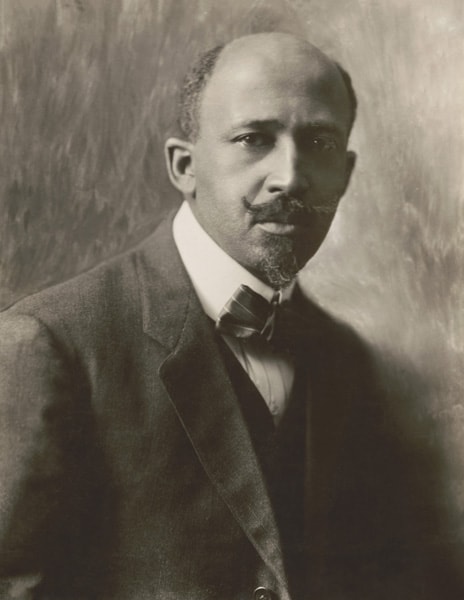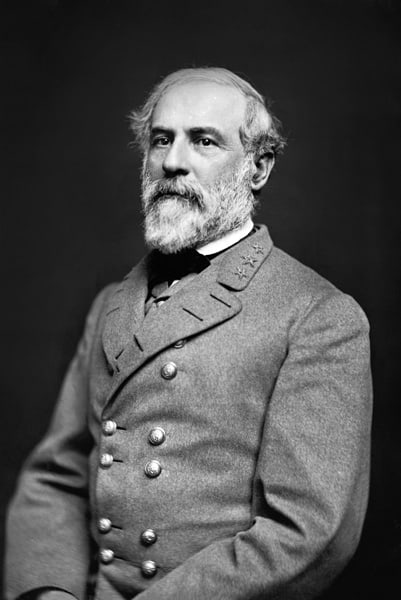Conservative Praise for Black Communist W.E.B. Du Bois
Gregory Hood, American Renaissance, July 22, 2020
Clear as a bell, and devastating https://t.co/1ZmtMu9XIU
— Rich Lowry (@RichLowry) July 21, 2020
W.E.B. Du Bois was one of America’s most important leftist intellectuals. The Souls of Black Folk and Dusk of Dawn: An Essay Toward an Autobiography of a Race Concept were the precursors to today’s racial politics. Black Reconstruction in America anticipated the contemporary doctrine that Reconstruction didn’t go far enough. (Eric Foner’s Reconstruction: America’s Unfinished Revolution, 1863-1877 is the key text.) Du Bois helped start the NAACP. A pro-Japanese polemicist early in World War II, a Communist Party member, and a Pan-Africanist who returned to the Mother Continent and died in Ghana, there’s no way he could be considered a conservative or an American patriot. But National Review’s editor trots him out as the moral authority so he can insult Robert E. Lee. “Conservatives” love to find blacks onto whom they can hang their ideas — any ideas, conservative or liberal — so they can bask in the moral glow of melanin.
Du Bois said that the South “cared only for State Rights as a weapon to defend slavery.” However, Abraham Lincoln thought preserving the Union was more important than ending slavery. The pro-Union slaveholders in the Border States felt the same. Southern secessionism first emerged with the 1828 “Tariff of Abominations,” not from slavery. I agree with Du Bois’s charge that people “do not go to war for abstract theories of government,” but “property and privilege” is by no means their only motive. People make war for monarch, nation, family, and tribe as much as for plunder. In making this argument, Du Bois sounds much like James Burnham and the Machiavellian political school. But he’s wrong that defending slavery was the South’s only political concern.
Southern states could have stayed in the Union and kept their slaves. They could have accepted Abraham Lincoln’s February 3, 1865 peace offer, which kept slavery as an option provided there was peace and reunification. During the last months of the war, General Lee favored arming blacks to fight for Southern independence. Independence and sovereignty became more important than the “peculiar institution.” Du Bois is right that the South was nationalist in 1812 but embraced “particularism” in 1861. He fails to recognize that the South’s interests changed. John Calhoun himself favored a high tariff in 1816 but shifted his position because he came to believe the South benefitted from free trade. The South didn’t want to be reduced to a permanent, powerless minority in the American political system, subservient in a Northern-dominated economic system.
It’s striking that Du Bois recognizes that politics is about interests, not ideology, but he reverts to hokum about “human progress and Christian democracy” and General Lee’s failure to champion it. He even calls Lee a traitor to “humanity’s God,” but Du Bois was no Christian. His faith was communism, which is why we get lazy talk about “progress.” Du Bois praised the Soviet Union for the “dethronement of the clergy and the refusal to let religion be taught in the public schools.” Much like Martin Luther King’s faux-Christianity, Du Bois’ invocation of “Christian democracy” and “humanity’s God” is bait for rubes like National Review editors.

W.E.B. Du Bois (Credit Image: © Circa Images/Glasshouse via ZUMA Wire)
Du Bois faults Lee for not having the courage to “stand against his family and his clan.” Standing against one’s family and clan has traditionally been one of the worst things you can do. Standing for your family and clan is the essence of real conservatism. Of course, while Du Bois insults Lee for not being an ethnomasochist, Du Bois himself was a thoroughgoing black nationalist. He spent his life fighting for his race. He had the moral courage to leave this country and go back to Africa. He’s better than those “black nationalists” who survive on liberal white patronage.
We can’t expect Rich Lowry to understand fighting for one’s “family” and “clan.” It’s not surprising that today’s National Review takes the side of a Communist who called Stalin a “great man” and not that of Dwight Eisenhower, who said Lee was a “great American” whom “present-day American youth [should] strive to emulate.” National Review’s egalitarianism can’t help but lead to these positions.

Robert E. Lee (Credit Image: © JT Vintage/Glasshouse via ZUMA Wire)
Still, the case for why Robert E. Lee was a coward — written by W.E.B. Du Bois — is just too much for any conservative to stomach. It’s especially absurd when it’s promoted by a guy claiming to make The Case for Nationalism. We’ve had our fun, Mr. Lowry, but we can all see through this farce now. Take the chance to rebrand as an edgy centrist before you discredit conservatism altogether.















